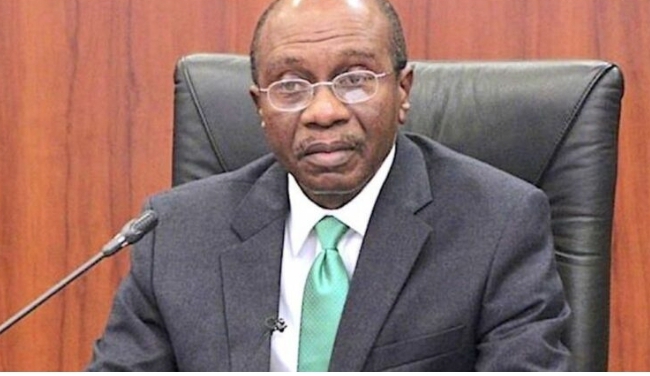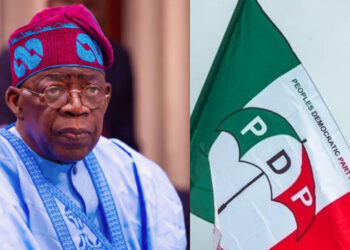By Tambaya Julius
The unfolding events surrounding the former Governor of the Central Bank of Nigeria, Godwin Emefiele, have captured the nation’s attention.
In a startling turn of events, Godwin Emefiele, the former CBN governor, currently finds himself in the custody of the Economic and Financial Crimes Commission (EFCC).
This gripping development unfolded at the National Headquarters of the anti-graft agency in Jabi, Abuja.
What’s particularly intriguing is that this detention occurred less than an hour after Emefiele was released from the clutches of the Department of State Services (DSS).
An impeccable source with intimate knowledge of the situation disclosed this shocking turn of events to our correspondent.
The revelation came to light on a Friday morning, shedding light on the reasons behind Emefiele’s detention.
According to the source, the EFCC is conducting an extensive investigation into allegations of misappropriation of funds and other improprieties during his tenure as the head of the apex bank.
The allegations against Godwin Emefiele are both serious and weighty.
He faces scrutiny regarding the alleged misappropriation of funds during his time as the Central Bank of Nigeria’s governor.
The EFCC’s decision to detain him less than an hour after his release by the DSS indicates the gravity of these allegations.
The situation involving the former CBN governor has had a significant impact on the nation.
As the EFCC’s investigation unfolds, it raises questions about the management of the apex bank’s finances during Emefiele’s tenure.
This has sparked widespread interest and concern among the public and financial experts alike.
Emefiele’s detention has led to discussions surrounding the legal and ethical implications of the allegations.
The investigation’s outcomes could potentially shape how future leaders handle their financial responsibilities, making this case of national significance.
As this case continues to develop, it is imperative to closely monitor the proceedings and the EFCC’s investigation.
The outcomes of this investigation may have far-reaching consequences for the financial sector and governance in Nigeria.











